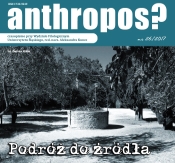Nigerian Response to Global Change and Child Development
Nigerian Response to Global Change and Child Development
Author(s): Edward Adeyanju, Frank A. SalamoneSubject(s): Politics / Political Sciences, Social Sciences
Published by: Instytut Nauk o Kulturze i Studiów Interdyscyplinarnych - Wydział Filologiczny - Uniwersytet Śląski
Keywords: responsibility;multicultural eduaction;post colonialism;
Summary/Abstract: The impact of colonialism and the globalization which continued the process of dependency has initiated numerous changes in the world. None has been of greater social and cultural significance than changes in child-rearing. Using Nigeria as a case study, focusing mainly on the Yoruba of the southwest and the Hausa of the north, the authors seek to draw conclusions on the changes wrought through globalization which can be further tested in other developing countries. By globalization the authors follow James L. Watson's definition, "Cultural globalization, a phenomenon by which the experience of everyday life, as influenced by the diffusion of commodities and ideas, reflects a standardization of cultural expressions around the world." This definition includes social, cultural, economic, political and technological forces on the everyday life of peoples, in our case peoples not in the cultural tradition of the Western World and at a power disadvantage in interactions. Specifically, the authors concentrate on how these factors have an impact on all that surround childrearing, from feeding to schooling to social construction of reality.
Journal: Anthropos?
- Issue Year: 2017
- Issue No: 26
- Page Range: 140-154
- Page Count: 15
- Language: English

